On a recent evening, I found myself surrounded by the energy of children enjoying a warm summer night. We were at an event for the food bank’s Summer Meals program, and kids were running by on all sides – heading to get their faces painted, play football with the DC Divas, and of course, eat dinner.
Visiting with our partners and clients is one of the best parts of my job, and as pandemic restrictions have eased, it’s something I have been eager to get back to. Upon arriving, I spotted a group of women sitting at a table, chatting as they watched the happy chaos, and sat down to join them.
The woman next to me was the grandmother of one of the girls playing nearby, and as we spoke I learned that she had emigrated from Guatemala a little over 10 year ago. She came to the area to be with her son and daughter in law, and to help take care of their two kids (her granddaughter and a younger grandson).
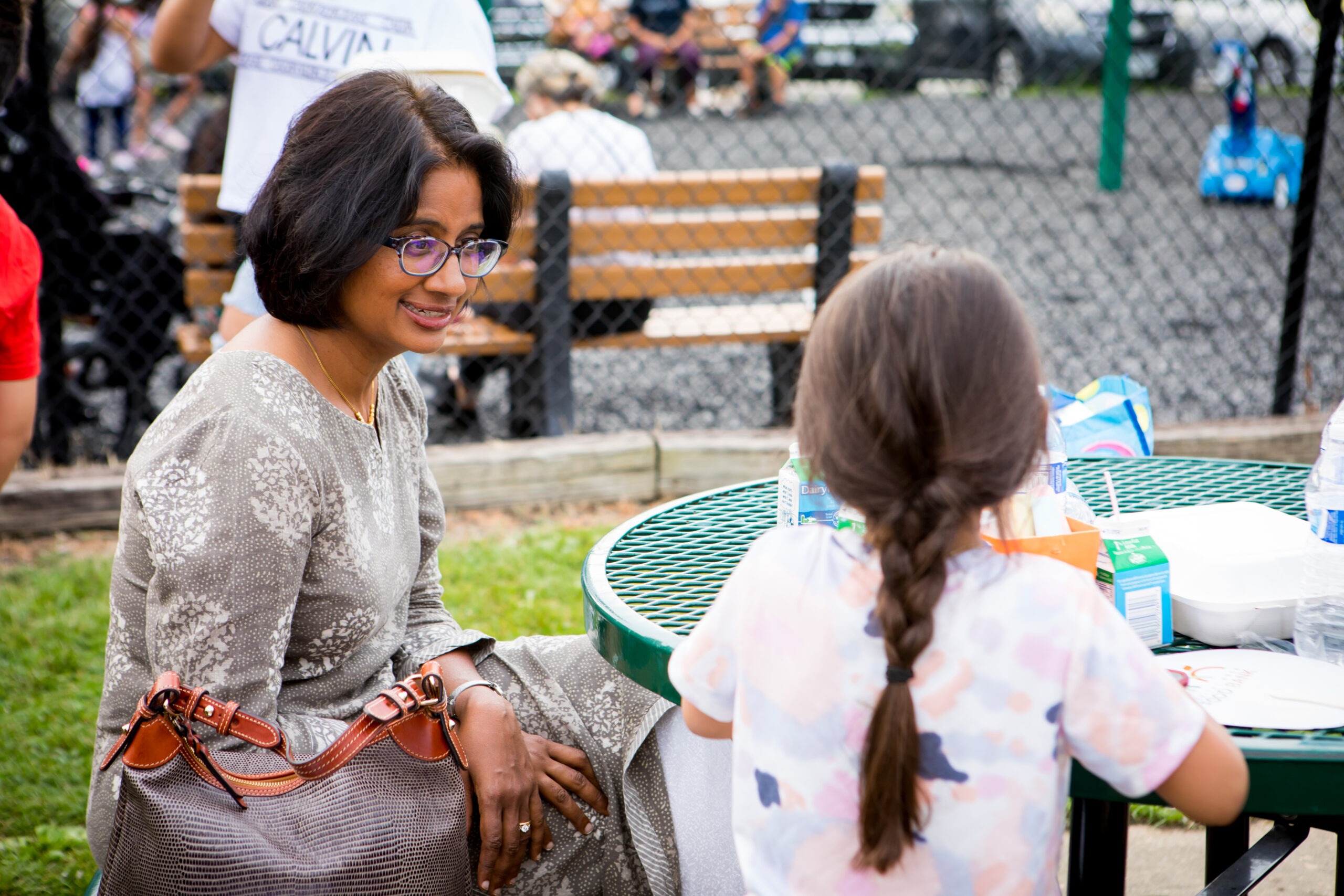
Like so many people in our region, the pandemic had impacted them financially. Her son works as an auto repair specialist, a job that she said generally helps pay the bills when work is plentiful. As the number of people driving declined in recent years, however, so did his income. Her daughter in law also works, cleaning homes in the area. In the spring of 2020, that work started to feel dangerous. Her grandson was just a newborn at the time, and her daughter in law curtailed many of her cleaning jobs to limit the risk of getting him or others in the house sick.
With reduced income, they made ends meet by pooling food and other resources with neighbors when they needed to. And when that wasn’t enough, she said, they would periodically seek assistance from places that they knew and trusted, like the neighborhood recreation area we were currently sitting in that makes meals available for her grandkids over the summer through its partnership with the food bank.
She had missed spending time with her neighbors during the last few years of COVID isolation, she told me, and that on that evening, she was as glad for being surrounded by her community as she was for the food.
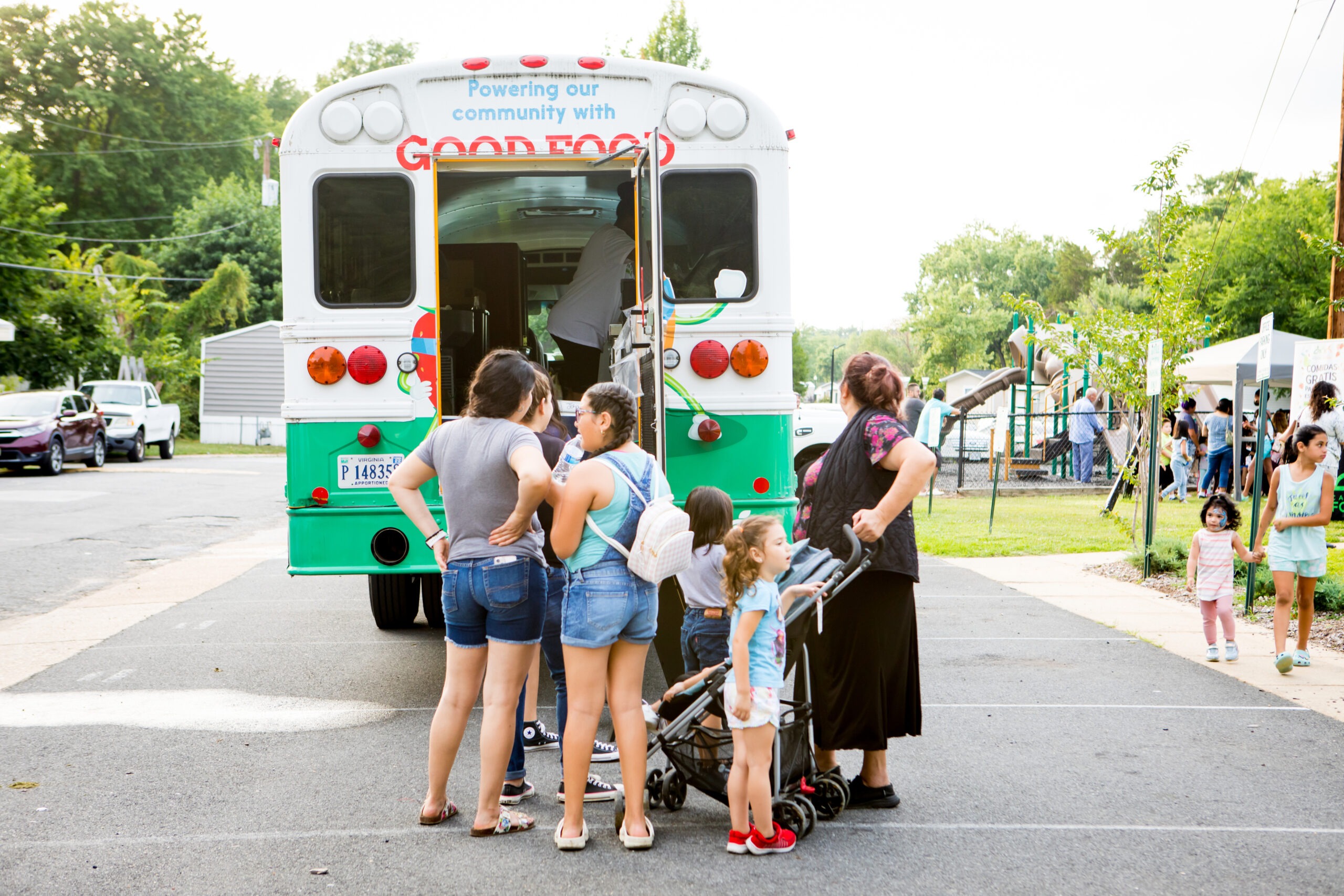
While we talked, her granddaughter Claudia – a bubbly little girl with a painted butterfly adorning her face – came and sat next to me, gently pulling my sleeve to get my attention. When I asked how old she was, she held the fingers on her hand outstretched, plus one more on her other hand: a very proud six years!
She was entering first grade in the fall, and when asked, she offered that what she had liked most about kindergarten was that “the teachers made us all stand in straight lines for recess, so all those disorganized boys got out the door sooner and didn’t cost us any fun time.” She expressed hope that her new teachers would adhere to these same fun-maximizing practices.
We chatted for a while longer about the foods she liked. She was considering the vegetables on her plate, saying she liked them “ok” and deeming them mostly edible. But pizza and tater tots, she said, were much more her speed. After a few more bites, she ran off for more play.
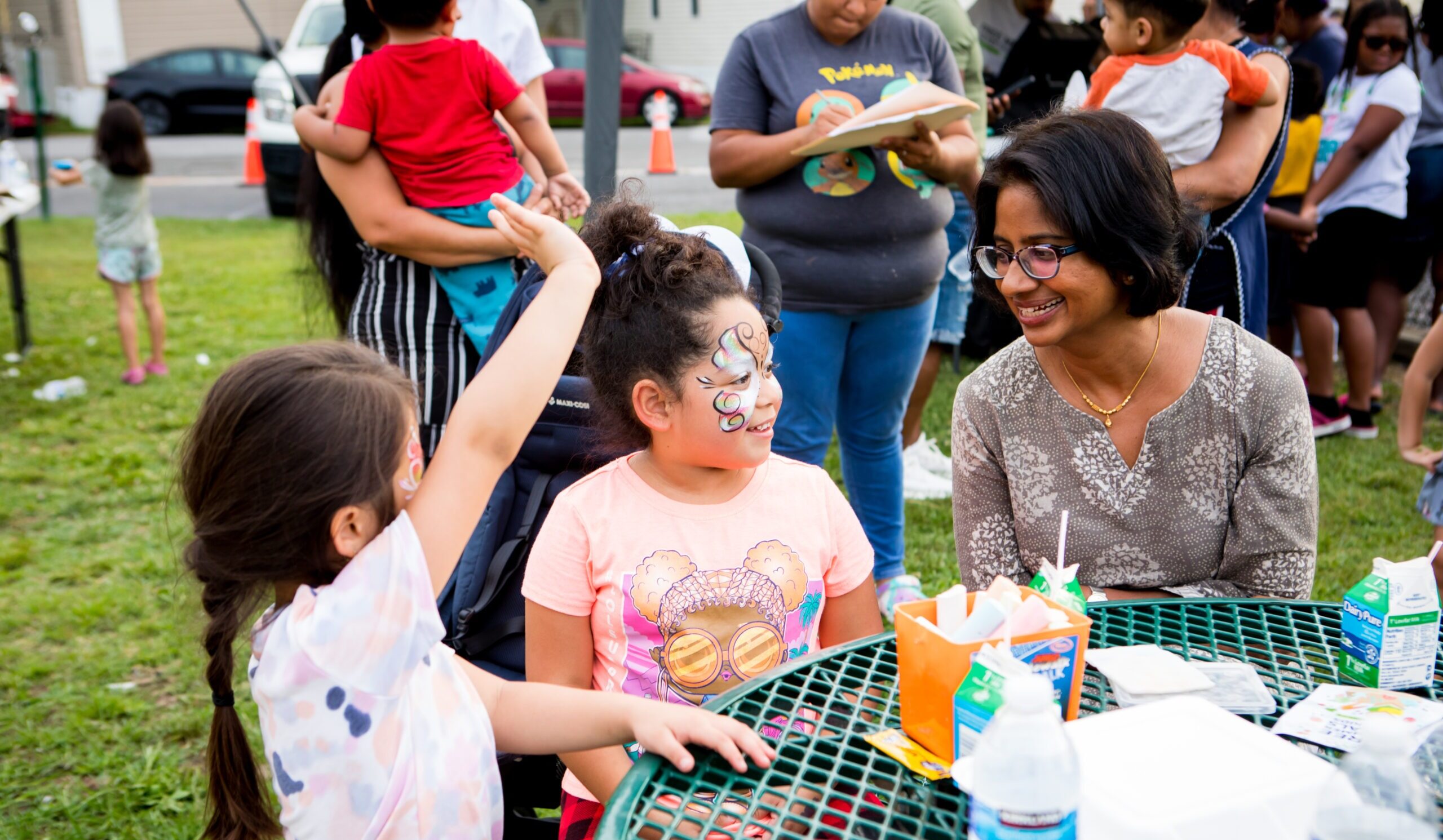
As the evening wound down I said goodbye to my table companions and headed out. Driving home, I was filled with gratitude at having been able to connect with so many people that evening. I was also filled with resolve.
I felt resolve for continuing to do more to support the growth and health of kids like the ones I had spent time with that night. That little girl’s spunk – her joy and sparkle – is something I hope she never loses. Among many other things, that will require that she has consistent access to nutritious food (and a desire to eat it) to help her grow up to meet her potential. Our programs for kids are an essential part of that, and as we focus more on young children, we can design even more tailored and effective ways of reaching them and helping them form lifelong healthy eating habits.
I also felt resolve for doing more to help and empower people like the grandmother I’d spoken with, and her children. In the short term, how can we ensure they have a trusted web of community resources around them, and that they can access the supports and programs available to assist them? Longer term, how can we address some of the challenges that can make putting a meal on the table difficult, despite how hard they’re working?
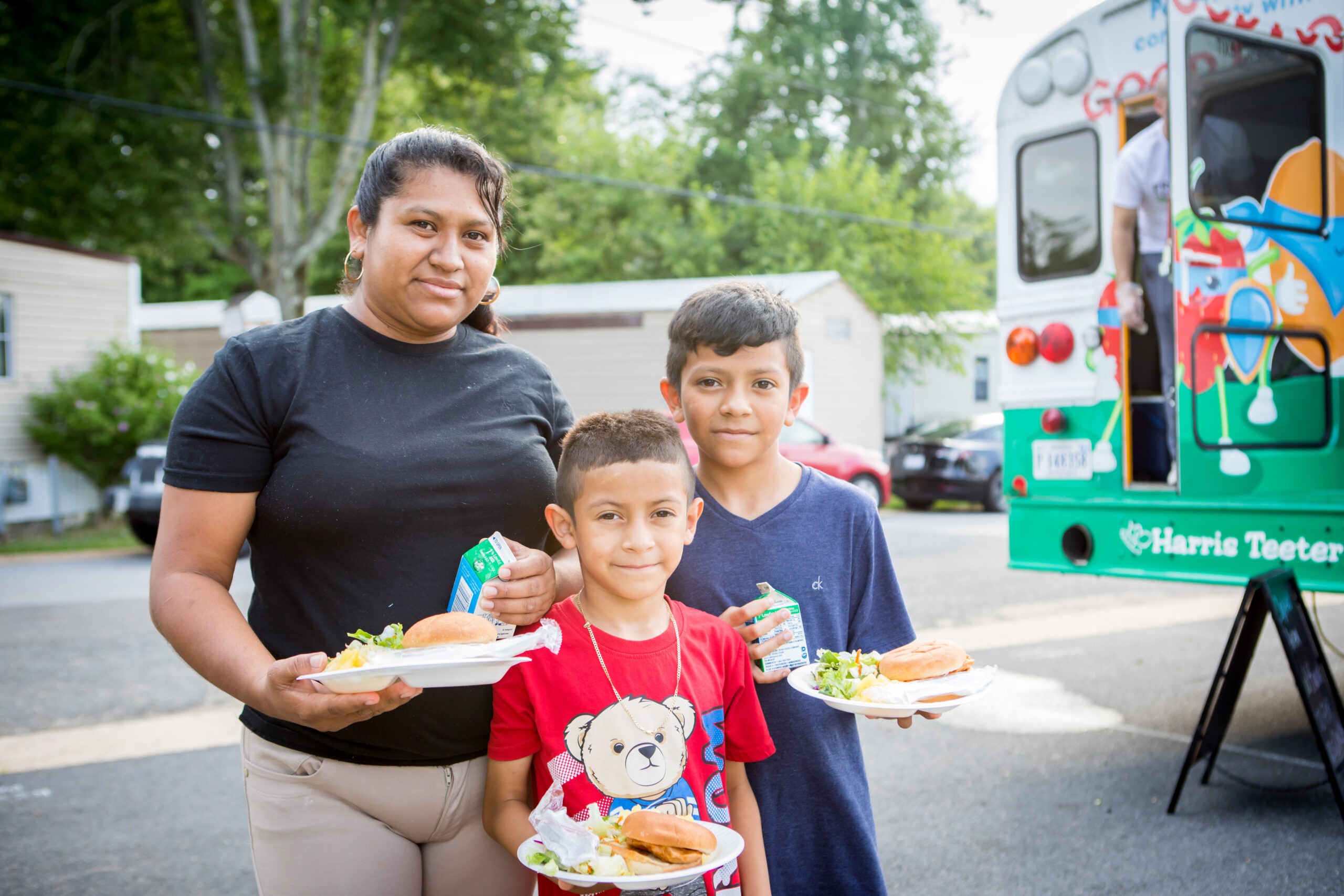
The food bank’s “Food Plus” initiatives, which pair food with additional services to help aid in our neighbors’ economic mobility, is an important start, as is our advocacy work to expand eligibility for key government programs. But there is still enormous untapped possibility that can be unlocked by expanding our partnerships across the region with diverse organizations ranging from universities to corporate employers to other nonprofits.
I am incredibly proud of the food bank’s work – that we can be that trusted community partner for so many people. And I am also reminded, whenever I spend time with those we serve, how much remains to be done, and of the urgency of finding new ways to help all of our neighbors thrive.
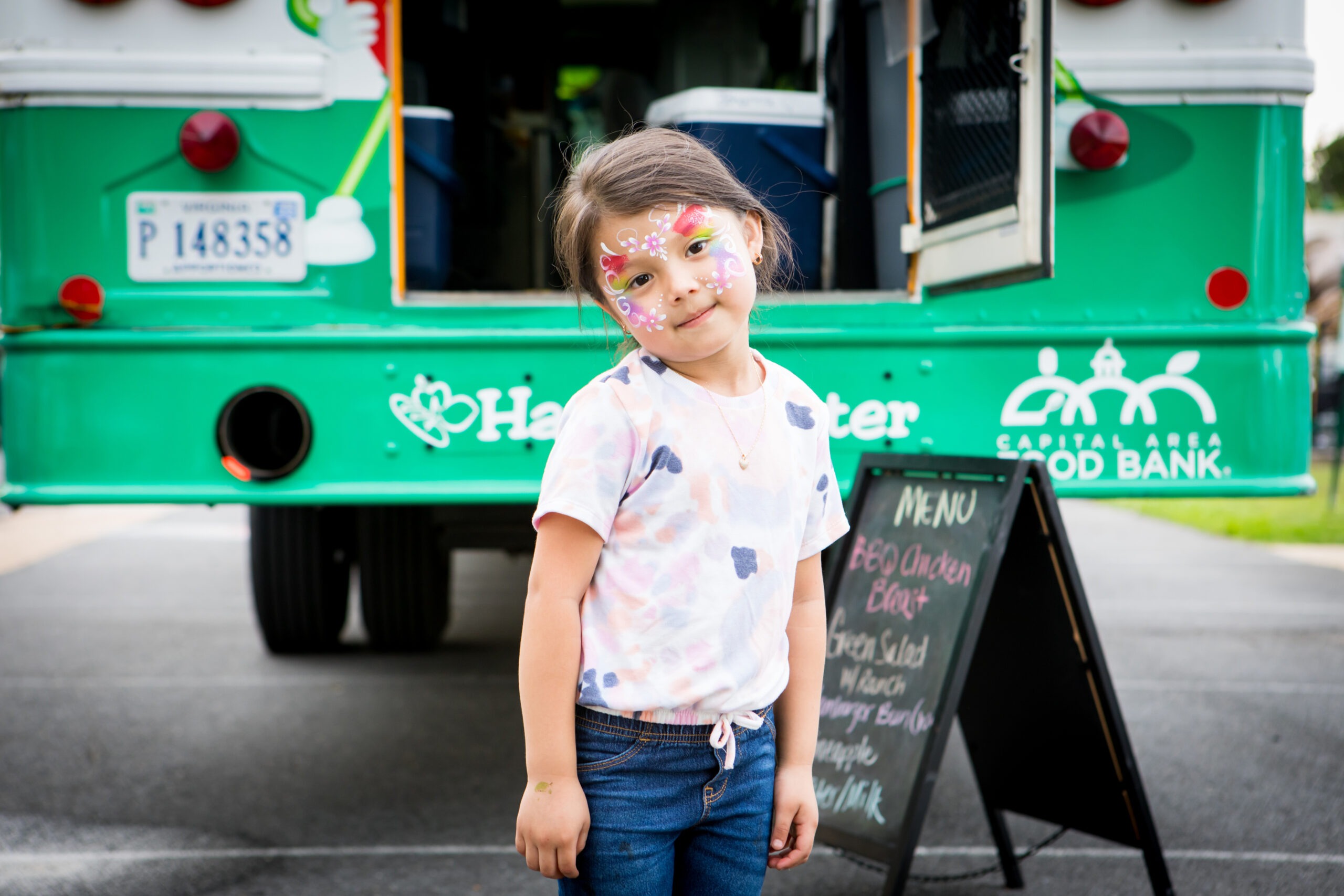
Photo credits: Les Talusan

